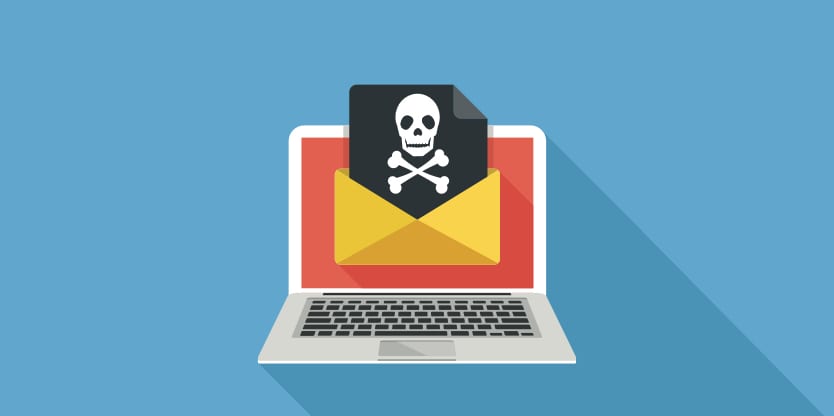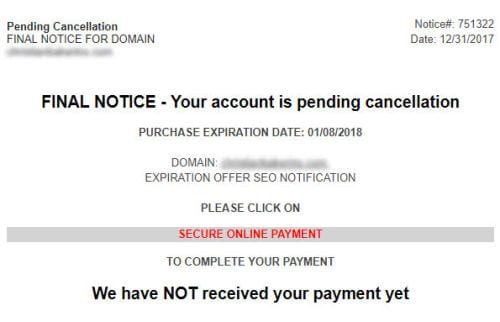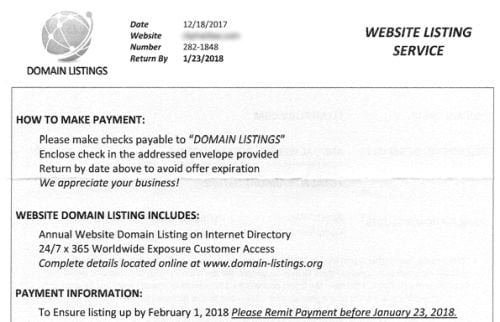Domain Listing Scams: How to Identify & Avoid
admin | Jan 31, 2018

If you are a small business owner, you’ve probably received an email or letter concerning your website, domain, or internet marketing. It has the appearance of an invoice, but it is really an attempt to trick you into paying for an unwanted service.
Don’t fall into their trap. Here are some tips for identifying and avoiding these scams.
What are Domain Listing Scams?
Recently we’ve seen an uptick in the number of scams targeting small business owners, churches, and non-profit organizations. These letters and emails pose as a company that manages your website, hosting, or the vague category of “domain listings.”
It looks like a bill or invoice, and can even use the words “Expiration Notice.” However, it is rather a solicitation for payment for services you did not sign up for. Too often, it gets passed on to the accounting department and paid along with the other invoices, without a critical look at whether it is legitimate or worth it.
Domain Listing Scam Examples:
How is it a scam?
Domain registrars (eNom, GoDaddy, Hover, Namecheap) and hosting platforms (WP Engine, Media Temple, DreamHost) don’t send out letters like this. Instead, billing and renewal notices are sent to the email you initially registered with, usually a webmaster@ account. And if you are employing a digital marketing or SEO company to handle citation work, hopefully you have better communication than a stern letter like this.
As an online directory, the value of these directories is non-existent. They don’t provide direct links from the listing, the listings are basic, and my guess is that most of the traffic to these sites are for people who get these unsolicited letters or spam emails. Plus, these could be considered paid links in Google’s eyes, which could result in a manual action.
Your time and money are better spent on proper citation management and link building services that can actually move the needle.
4 Questions to Ask About Unsolicited Letters
Here are some simple questions to ask when you receive communication like this.
1. Is your information correct?
A quick way to tell if the letter or email is a fake is to see if your mailing or contact information is correct. These scams rely on the information associated with your domain registration or public directories, both of which may not have up-to-date info. In one case, we saw a letter sent to our client with the right address, but with a name they haven’t used in several years.
2. Is there a phone number?
Most solicitation letters like this will include a website and maybe an email address, but very rarely do they include a phone number. Email gives the appearance of being able to contact them, but without the real-time connection of calling on the phone.
3. Did you sign up for the service?
You may not know the company that you host your website or domain with, but you should have a record of it. If you and your staff don’t remember signing up for the service, and can’t find records of it, it is a scam.
4. Is the letter threatening?
With these scams, the letters are often worded as a second or final notice, threatening to shut down your website if you don’t pay. This can be an effective tactic, as it motivates people to pay promptly.
How to Avoid Domain Scams
When you receive a letter or email like this, be sure to read the entire document carefully. Sometimes they will include wording that says “This is not a bill” in the fine print, even though it is deceptively designed to appear like one.
When in doubt, run it by your internet marketing company. There may be a slight chance that they signed you up for a service without you knowing about it, but 99% of the time they will confirm it is a scam.

